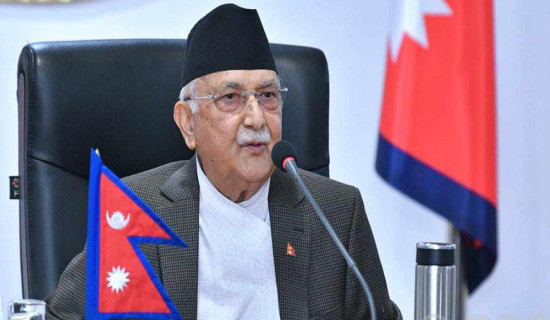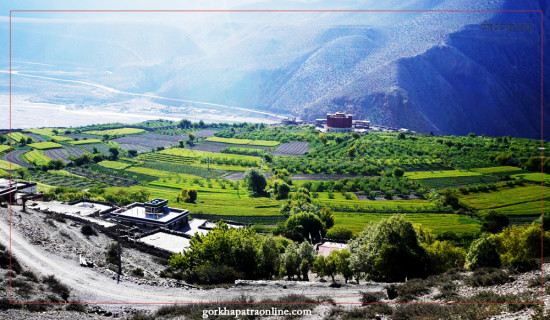- Thursday, 1 May 2025
Cut Regular Expenses
Nepal often faces problems in achieving its high goals of budget goals. It is customary for every successive government to incorporate ambitious programmes and policies, but as the fiscal years head to an end, many projects and programmes are left in the lurch. Reasons are obvious: poor capital spending and little or no progress in the execution of development projects. Billions of rupees are disbursed towards the final months of the fiscal year, a recurring anomaly that every government vows to root out but often fails. Failure to spend the stated amount of budget under the capital expenditure leads to sluggish development, lack of employment, and disappointing growth.
The poor capital spending has become a systemic fiscal woe, with negative consequences for the economy, fraught with myriad challenges. The strong political will and administrative efficiency hold the key to the successful implementation of the development outlay. At the same time, another budgetary flaw has plagued the country. It is the ballooning size of recurrent expenditure. A lion's share of the budget goes to meet salaries, allowances, and administrative costs, which has shrunk the space for the capital formation and investment in the productive sector. Every year, recurrent expenses go up, affecting the infrastructure and development. It is estimated that more than 60 per cent of the total budget is allocated, while a meagre 19 per cent is set aside for capital spending.
As the government is set to unveil the budget of fiscal year 2025/26, experts suggest that it should reduce the recurrent expenses by 20 per cent to maintain fiscal discipline and growth momentum. There are many ways to downsize the general expenditures. The tendency of government officials and leaders to visit foreign countries needs to be discouraged. Similarly, expenditure on the purchase of new vehicles and fuel and the number of political appointments should be slashed to save the hard-earned taxpayers' money. It is rational for the government to scrap the unnecessary and burdensome institutions and mechanisms. One economist asks the authorities to reduce the recurrent expenditure by Rs. 100 billion to enable the government to spend on development, social security, and public utilities.
Currently, Nepal's public debt to GDP ratio stands at 46.91 per cent. Sometimes the government is compelled to raise public debt to meet even the recurrent expenses when the revenue collection does not meet the target. So it is sensible to cut recurrent expenditures to ease the pressure to repay principal and interest. If the government digitises the disbursement of social security allowances and pensions, there will be fewer cases of duplication and possible abuse of funds. The government should also be selective in implementing the pride projects in a time-bound manner. Only a limited number of pride projects should be picked, with the allocation of sufficient budget. It is defective fiscal policy to announce a large number of pride projects by not earmarking an adequate budget. This will only give rise to mismanagement and delay in the completion of projects, which is detrimental to the health of the national economy.
The political parties and lawmakers must come together to prioritise the projects that fuel growth and generate jobs. The practice of unequal distribution of the budget does not promote balanced development. The allocation of a large amount of budget to the constituencies of powerful leaders and ministers undermines the rights of backward regions. Therefore, the government should be prudent when it comes to the distribution of the budget judiciously.

















